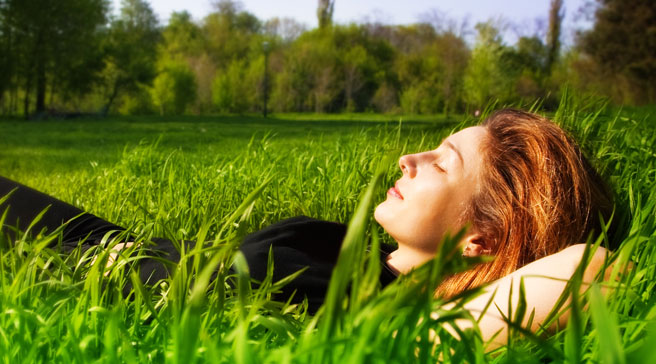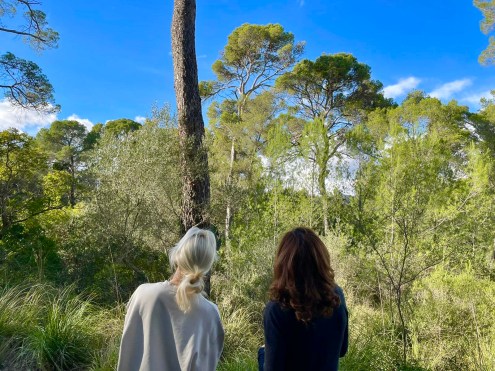Switch on your senses
With all our senses fully switched on, we can boost our sense of emotional and physical wellbeing, says Rebecca Hardy

When Zoe, 33, had her first baby, there was one thing that kept her sane — walking in the park and soaking up the beauty of her natural surroundings. ‘My baby would cry for hours on end, but walking in the park helped me relax,’ she says. ‘It was a beautiful summer so getting out in the sun really rejuvenated me. I remember loving the sensation of the sun on my skin, and how I used to focus on the colours of the flowers. Everything had this lovely, fresh, meadowy smell. Being outside felt like such an escape and helped me feel in control. I stopped worrying about being a mother and just accepted the situation.’
Feeling alive
Living with this kind of sensory awareness is something most of us only do when we’re on holiday. Half the reason we go away is to immerse ourselves in the sensory experiences around us — the waves lapping against the shore, the salty lick of the sea, the sights, sounds and smells of an unfamiliar land where every moment is strange and new. Once we are home, however, we tend to neglect this same need. Life can take on a grey drabness as we switch back onto autopilot, and become disconnected from the full range of our senses.
‘Many of us are living without feeling fully alive,’ says Lori Bryant-Woolridge, sensuality coach and author of Weapons Of Mass Seduction. ‘But there is so much joy buried beneath the everyday reality of our lives. When we walk to the train or bus stop, for example, most people don’t notice what’s around them — the birds singing, the sky, flowers in bloom, the sounds of the city. But our sensuality is such a gift.’
Sensuous living is about creating those sensory moments that we know give us pleasure. ‘If we do this, two things happen,’ says psychologist and life coach Dr Sally Ann Law. ‘First, we appreciate more of the world around us, which adds to the quality of our lives, and second, we make better decisions based on our whole, authentic selves, rather than just part of ourselves. We have all our five senses because they help us, from an evolutionary point of view, so we should try to use them.’
Author and holistic teacher William Bloom says living in this way also triggers endorphins, the feel-good hormones. ‘Endorphins are the body’s natural hormones that are responsible for the physical sensations of pleasure. They also anaesthetise pain, strengthen the immune system and are the opposite of the stress hormone cortisol. Children have high levels of endorphins, but a 30-year-old’s levels only recover by about the tenth day of their holiday, when the cortisol is finally replaced by endorphins.’
Enjoy and appreciate
It may take time to build this new awareness into our lives so, once a week, set aside a few hours and consciously decide to be fully aware of your senses. Fill your environment with beautiful objects and sensory experiences — play music you love, burn an aromatherapy oil, bake some bread and be aware of the feel of the dough and the smells drifting through the kitchen.
‘Incorporate things that speak to your sensual self – textures, colours, music, scents,’ says Woolridge. Alternatively, have a massage, or go swimming and feel your body gliding through the water. ‘The trick is to consciously guide yourself to have the sensations and notice you are feeling them,’ says Bloom. ‘Even if you are out pushing your child’s pushchair in the park, just take a mental pause, slow down your breathing, then look. Trees, grass, sky. Enjoy and appreciate.’
More inspiration:
Read The call of silence by Mark Vernon on LifeLabs








